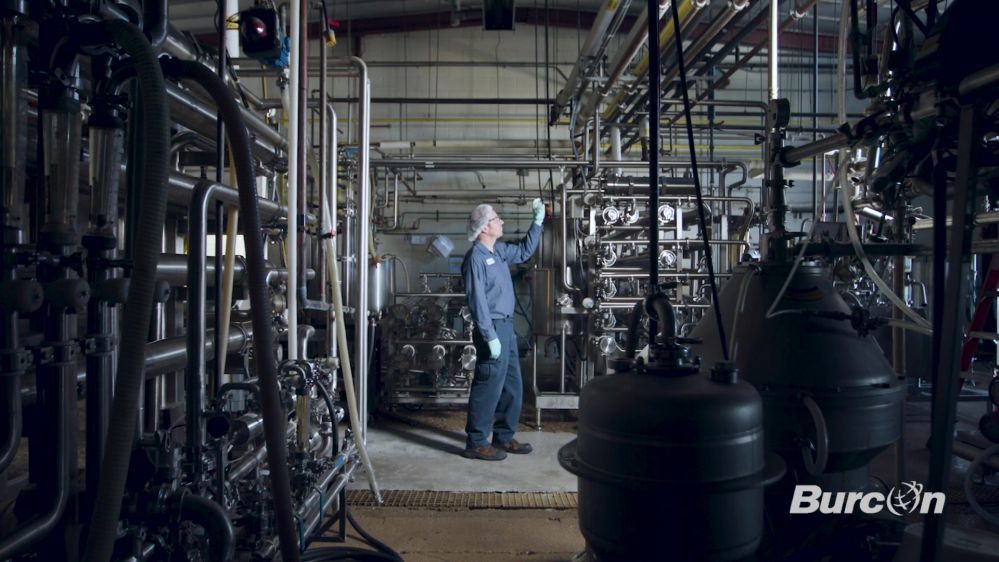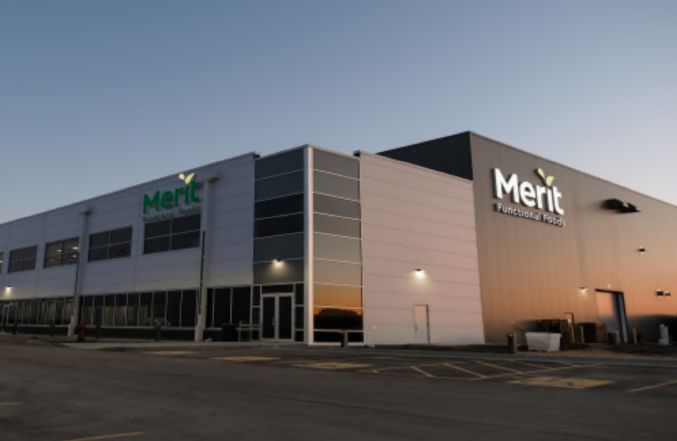Plant protein tech company Burcon NutraScience is still “actively seeking partnerships” to acquire the assets of distressed Canadian plant protein processor Merit Functional Foods, which went into receivership on March 1, but says that whoever acquires the facility, “We will have a role to play.”
Receiver PricewaterhouseCoopers (PwC) had aimed to select a bidder for Merit’s pea and canola protein processing plant in Winnipeg by April 28, but has not provided an update on the sales process since.
‘However this turns out, we believe there will be an opportunity for us’
Burcon—which developed the protein extraction technology utilized by Merit Functional Foods—said its offer to work with an unnamed “plant protein partner” to restart the facility had been rejected in early May.
However, speaking on the firm’s full year earnings call Thursday, Burcon CEO Kip Underwood said: “We are still pursuing potential partners to see if we can put forth a bid.
“The Merit facility was purpose built for our technology, so as we move forward, we feel reasonably confident that regardless of how the ownership lands up, there will be a role for us to play. That could be working with a new owner to produce and sell. It could be contract manufacturing with a new owner to bring more products to market ourselves. Or it could be removing the key unit processes from the facility for placement in a new location in the future. So we’re confident that there are more cards to play in this and we will have a role as things move forward.”
Speaking at a webinar with Radius Research last week, he added: “There are active bidders… If they [the successful bidder] use the technology that falls under our intellectual property, there would most likely be a licensing arrangement which would then have a royalty [stream attached].”
Private placement
Burcon posted a net loss of C$25.3 million ($19.2 million) in the fiscal year ended March 31, 2023, ending with cash reserves of C$1.5 million ($1.1 million). It generated revenues of just C$0.4 million ($0.3 million) from royalties from pea and canola proteins sold by Merit.
“In fiscal 2023, Burcon secured a C$10 million ($7.6 million) loan facility from its major shareholder, of which Burcon drew down C$5 million ($3.8 million) from the first tranche of the facility during fiscal 2023,” said the company, which went on to complete a non-brokered private placement for $3.4 million ($2.6 million) in May.
“We expect cash resources to fund operations to March 2024, and further to March 2025, if conditions for advance under the second tranche of C$5 million ($3.8 million) are satisfied.”
Potential revenue streams
Asked about potential new sources of revenue during the earnings call, Underwood stressed that Merit was not Burcon’s sole route to market, noting that it was exploring several opportunities to license its IP, which covers extraction technology for a range of plant proteins including pea, canola, soy, sunflower, and hemp.
Burcon is also exploring alternative revenue streams including government grants and subsidies and offering its Winnipeg technology center “as a contract research facility,” he said. “We’re highly confident that both of those will bring in additional revenue this year.”
Burcon also has a “focus on a capital light model or using contract manufacturing,” he said. “That enables speed. We don’t have to build a facility to launch products and we are in in conversations with multiple parties along those lines and hopefully we can provide more specific information this year.”
‘We don’t believe that the price of our offerings are a barrier to being successful’
Asked during the Radius Research webinar if proteins produced using Burcon’s technology were “too expensive for the market,” Underwood said: “No, we don’t believe that the price of our offerings are a barrier to being successful. In fact, our offerings create real value and drive profit for our customers, and that’s why they’re seeking them out.”
He added: “Burcon was innovating in plant proteins 10 years ago, long before we had this plant foods revolution… and really, I think in some respects, the market has caught up with us.”
Shareholder: ‘Investors were never informed of this impending implosion of the facility’
However one caller on the earnings call who described himself as a “long-term investor,” said Burcon shareholders had been kept in the dark.
He told Underwood: “The world class facility at Merit… somehow spectacularly failed… Investors were never informed of this impending implosion of the facility… which was clearly devastating to the share price and long-term investors like myself.
“Investors were only given positive news that things were moving along as planned, and that impending partnerships were very, very close. None of which has happened. Kip, all I ask is can you promise investors that there will be clarity and openness going forward?”
Underwood, a food ingredients industry veteran who joined Burcon in November 2022, responded: “In short, the answer is yes.”

High purity pea and canola proteins
Founded in 2019, Merit Functional Foods was formed to produce high-purity proteins using patented processes developed by Burcon. Its plant in Winnipeg, Canada, became operational in 2021 and has a capacity of 4,000 metric tons for canola and pea proteins. To date, it has received C$200 million ($147 million) in investment.
While the proteins had “formulated into countless products globally,” said Merit co-CEO Ryan Bracken in a LinkedIn post in February, Merit “couldn’t quite get to the level of cashflow needed to operate the business profitably, quickly enough.”





